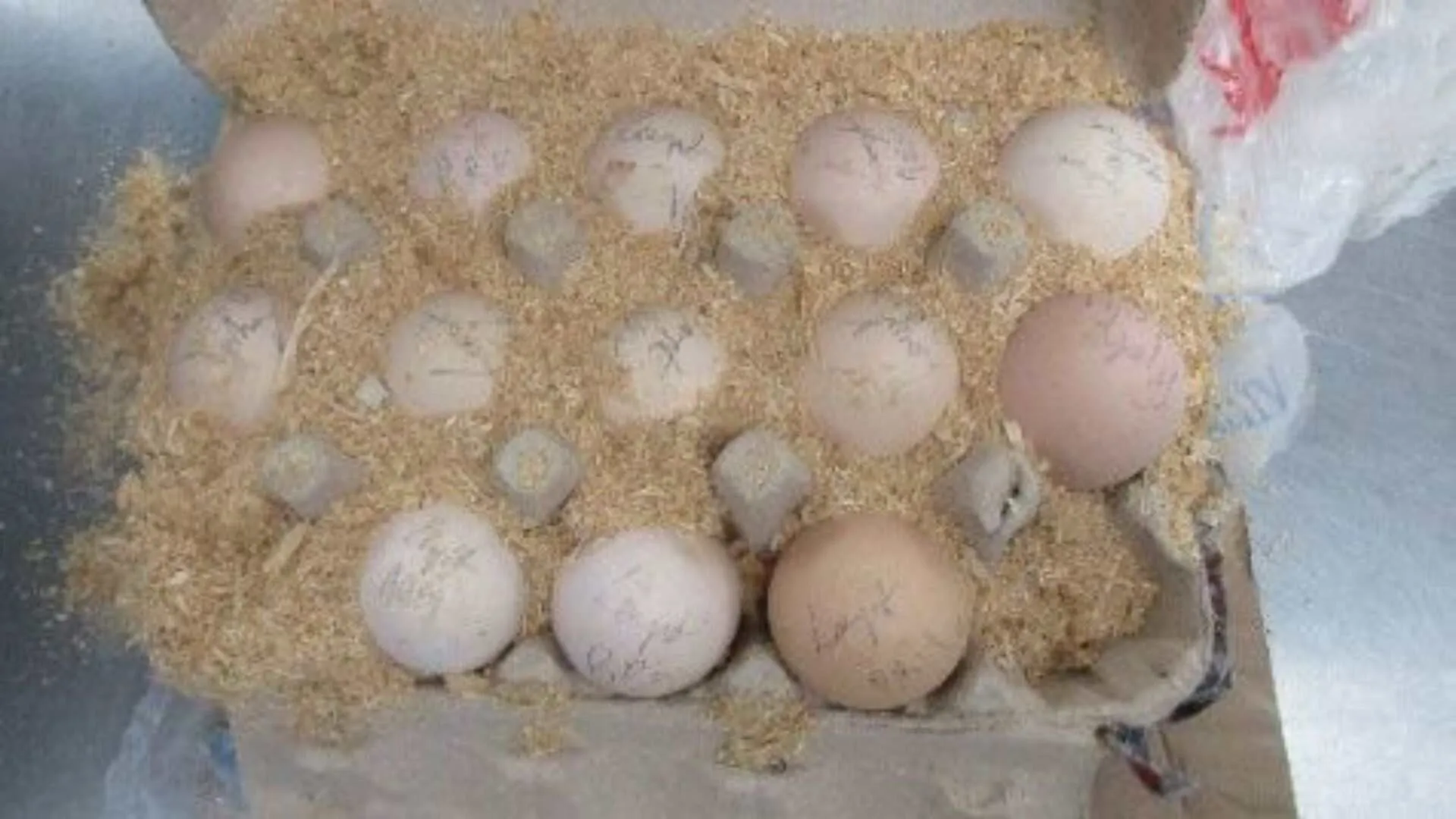Between March 6 and March 20, U.S. Customs and Border Protection (CBP) seized 39 hatching eggs in Louisville, Kentucky. The eggs were detected in three separate shipments, states an agency press release. Two of the shipments, which originated from Turkey, were headed for New York and Nevada, and the third shipment, which originated from Romania, was headed for Costa Rica.
Hatching eggs that carry live embryos of game birds, racing pigeons, or other birds in demand in the market are heavily controlled at U.S. borders. After being incubated and hatched, these birds would normally be reared for many purposes. Hatching eggs, however, being smuggled into the country pose a serious biosecurity threat as they can contain highly infectious diseases like avian influenza and Newcastle disease.
Hatching eggs are all birds that are avian to encompass poultry, game fowl, racing pigeons, and other birds—if there is a demand for a live bird somebody will attempt to import hatching eggs for them. The live eggs are imported into the U.S. to be hatched or reproduced. The eggs are most often to be incubated, hatch and then be raised.”. For agricultural use, hatching eggs are regulated by live animals regulations (9CRF) and are regulated greatly due to them having the possibility of transmitting Newcastle disease and/or Avian Influenza (HPAI),” stated the agency within its announcement.
CBP Agriculture Specialists in Louisville have also seen several instances of unauthorized shipments of hatching eggs. During 2024 alone, they seized 25 shipments of 519 eggs from several countries, including Turkey, Belgium, Romania, and Singapore. These shipments were destined for both U.S. and foreign locations.
LaFonda D. Sutton-Burke, Director of Field Operations for the Chicago Field Office, highlighted the significance of these interceptions in safeguarding the country’s food supply. “Our country’s food supply is always susceptible to diseases not previously known to occur in the United States. These interceptions point to the diligence and alertness our CBP Agriculture Specialists exemplify, every day. They keep the United States free from dangerous diseases, which could impact our food supply.”
By deterring unlawful hatching egg importation, CBP is helping to reduce the transmission of bird diseases and ensure agricultural biosecurity.










